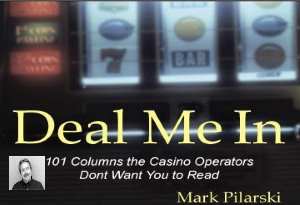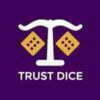I enjoy your column in The Detroit News; however, I haven’t caught all of them and this subject might have been previously answered. At the Motor City Casino they have a 5-deck continuous shuffler at their blackjack tables, where after the second hand is dealt they replace the discards from the first hand back in the shoe to reshuffle with cards ready to be dealt. Who has the advantage, the player or the club? Ray L.
For another column another day, Ray: the value of playing hand-pitched single deck blackjack. But today, we’ll talk about those shuffle machines that seem to be appearing everywhere.
Automatic shufflers invariably favor the house because more hands are dealt per hour when the dealer does not have to stop and shuffle the cards. From the casino’s perspective, time is money. The more hands per hour, the better for the house. From a player’s perspective (your perspective), speed kills in a casino environment. The longer you are exposed to the house advantage, the more havoc on your bankroll.
For example, take a $25 minimum blackjack table with five players, each player averaging about 70 dealer-shuffled hands per hour. If every player were to stick with the minimum wager of $25, each would be risking $1,750 per hour. If the dealer is squared off against your average Joe, the house edge could be as high as five percent. The dealer could poach on Joe’s wallet for as much as $87.5 per hour. With automatic shufflers introduced, this same table will force players to average 90 hands per hour, and our $25 bettors now each risk $2,250 per hour. Each player’s expected hourly loss could rise to $112.50. Even strong basic strategy players, playing against a paltry house edge of .05%, will also take a greater hit as the game speeds up. Their expected hourly loss will go from $8.75 to $11.25.
As an example, if a slot machine is set to pay back 95¢ of every dollar run through it, why then when I play $100 don’t I get back $95 every time? Mark P.
Though you are correct in your assumption that machines are pre-programmed to return a certain percentage back to you the player, the payouts are discontinuous. Meaning, sometimes a machine will hit over and over again and at other times those appropriately named one-armed bandits will swallow every coin you cycle through them.
It’s over the long haul-months, even years-that you will see the win percentage of a cybernetic slot machine reflect the programming of the micro-chip inside. You, Mark, are there only a short period of time, and anything or nothing can happen.
I place two bets every spin on the outside sections (1-12, 13-24, 24-36). If the last spin was the number 3, then I avoid that group and place bets on the other two groups. I continue to do this until I lose two or three bets in a row, then I get up and walk away from that table. Is there any merit to this system? George C.
Yes, George, the part where you get up and walk away from the table when you’re losing. Your roulette system, though, is bootless as every spin is a random, independent event. The ball has no memory and lacks the artificial intelligence necessary to remember which number appeared last. Besides, by now you should know how I feel about gambling systems. They are empty in merit and profitless when in play.
Gambling thought of the week: “No wife can endure a gambling husband unless he is a steady winner.” -Lord Dewar




















